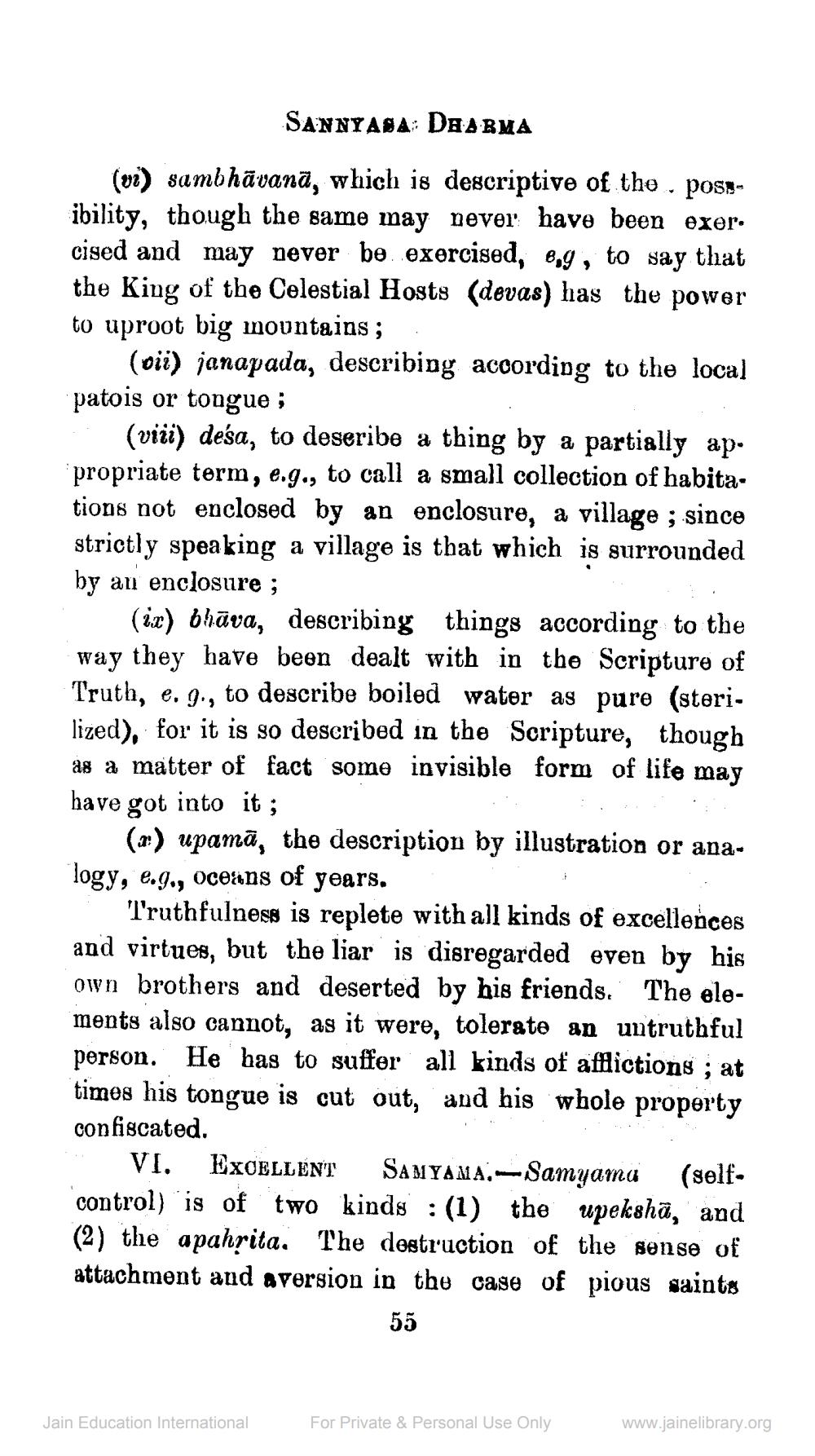________________
SANNYASA: DAARMA
(vi) sambhāvanā, which is descriptive of the postibility, though the same may never have been exer. cised and may never be exercised, 8,9, to say that the King of the Celestial Hosts (devas) has the power to uproot big mountains; .
(vii) janapada, describing according to the local patois or tongue ;
(viii) deśa, to deseribe a thing by a partially ap. propriate term, e.g., to call a small collection of habitations not enclosed by an enclosure, a village ; since strictly speaking a village is that which is surrounded by an enclosure ;
(ix) bhāva, describing things according to the way they have been dealt with in the Scripture of Truth, e. 9., to describe boiled water as pure (sterilized), for it is so described in the Scripture, though as a matter of fact some invisible form of life may have got into it;
() upamā, the description by illustration or analogy, c.9., oceans of years.
Truthfulness is replete with all kinds of excellences and virtues, but the liar is disregarded even by his own brothers and deserted by his friends. The elements also cannot, as it were, tolerate an untruthful person. He has to suffer all kinds of afflictions ; at times his tongue is cut out, and his whole property confiscated.
VI. ExceLLENT SatyamA.-Samyama (selfcontrol) is of two kinds : (1) the upeksha, and (2) the apahrita. The destruction of the sense of attachment and aversion in the case of pious saints
55
Jain Education International
For Private & Personal Use Only
www.jainelibrary.org




